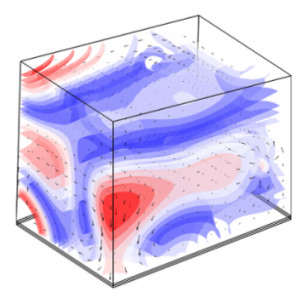 \
&
Contact us
\
&
Contact us
 \
&
Contact us
\
&
Contact us
Published on | 2 years ago
Programmes Enhancing EU R&IThis report presents the findings of the European Commission’s Expert Group on the COVID-19 impact on gender equality in Research and Innovation (R&I). The report highlights in particular the pandemic’s gendered impact on academic productivity, early career researchers (ECRs), and work-life balance. It investigates institutional responses and aims to bring forward unseen and marginalised experiences in academia. The recommendations are intended for R&I policymakers at national and EU-level, research funding organisations and research performing organisations. They present an opportunity for Member States and R&I organisations to apply the lessons learnt from the pandemic to the development of inclusive gender equality policies in the European Research Area (ERA). (from the report’s back cover)
The four chapters provide policy recommendations for specific stakeholders. In general the report highlights:
The executive summary including the five general recommendations can be found on pages 8-14.
We offer news and event updates, covering all domains and topics of Horizon Europe, Digital Europe & EDF (and occasionally, for ongoing projects, Horizon 2020).
Stay informed about what matters to you.
By signing up, you can opt in for e-mail notifications and get access to
a personalised dashboard that groups all news updates and event announcements in your domain(s).
Only for stakeholders located in Flanders
Digital, Industry & Space Digital Europe AI Continent Cybersecurity
Flanders is pursuing an active industry and export policy focused on defence innovation. With the Flemish Innovation and Industry Strategy for Security and Defence (VISD) and a new weapon trading decree, the government plans to help local companies market their technologies internationally. The European defence and security market is rapidly expan... read more

The Marie Skłodowska-Curie Action (MSCA) European Innovative Training Network “PBNv2 - Next generation Pass-By Noise approaches for new powertrain vehicles” started in May 2017. Their research has the shared objective of investigating the possibilities to decrease pass-by noise of vehicles.
The project is a collaboration between 17 research institutions and companies in the European automotive R&D and provides a learning environment for 14 PhD fellows. The Belgian partner is the Noise and Vibration Research Group of KU Leuven, and this project is one of the many Horizon 2020 MSCA Innovative Training Networks that the KU Leuven research group participates in.